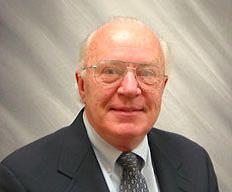David Christian Ward, Doctor of Science honoris causa

Prof. Ward has demonstrated courage, conviction and commitment, challenge, and curiosity in his life and studies; such qualities happen to be the most essential elements for all researchers who wish to succeed in scientific discovery. Professor Ward is an accomplished researcher and has made great contributions to genetic research and cancer research; he is also a figure of considerable international standing in the Human Genome Project. While at Yale, Professor Ward developed techniques called “fluorescence in situ hybridization”, known as FISH, which are widely used to analyze human chromosomes as well as to detect infectious, genetic and cancerous diseases. He then used FISH to achieve the complete genetic mapping of chromosome 12, which contains genes implicated in a variety of diseases, including diabetes and several forms of cancer. He’s also published research on ovarian cancer, which made possible the early detection of ovarian cancer.
Throughout the years, Professor Ward has also become an active participant in moving forward transfer of biotechnology. He has served on the Advisory Board of several successful biotechnology companies in the area of molecular diagnostics and drug discovery. He has co-founded five biotechnology companies, three of which are publicly traded on national stock exchanges. He has received numerous awards, including the Research Medal of the Surgical Society of America, the Eastman Kodak Prize of the American Association of Clinical Chemistry and the Biochemical Analysis Prize of the German Society for Clinical Chemistry. In 1992, he became a fellow of the American Association for the Advancement of Science. In 1999, he was awarded an honorary Doctorate of Science by the Memorial University of New Foundland. In 1998, he became Member of the National Academy of Sciences.
By conquering difficulties of life sciences through research in molecular cytogenetics and cancer genetics, Professor David Christian Ward has saved the lives of numerous cancer patients.





